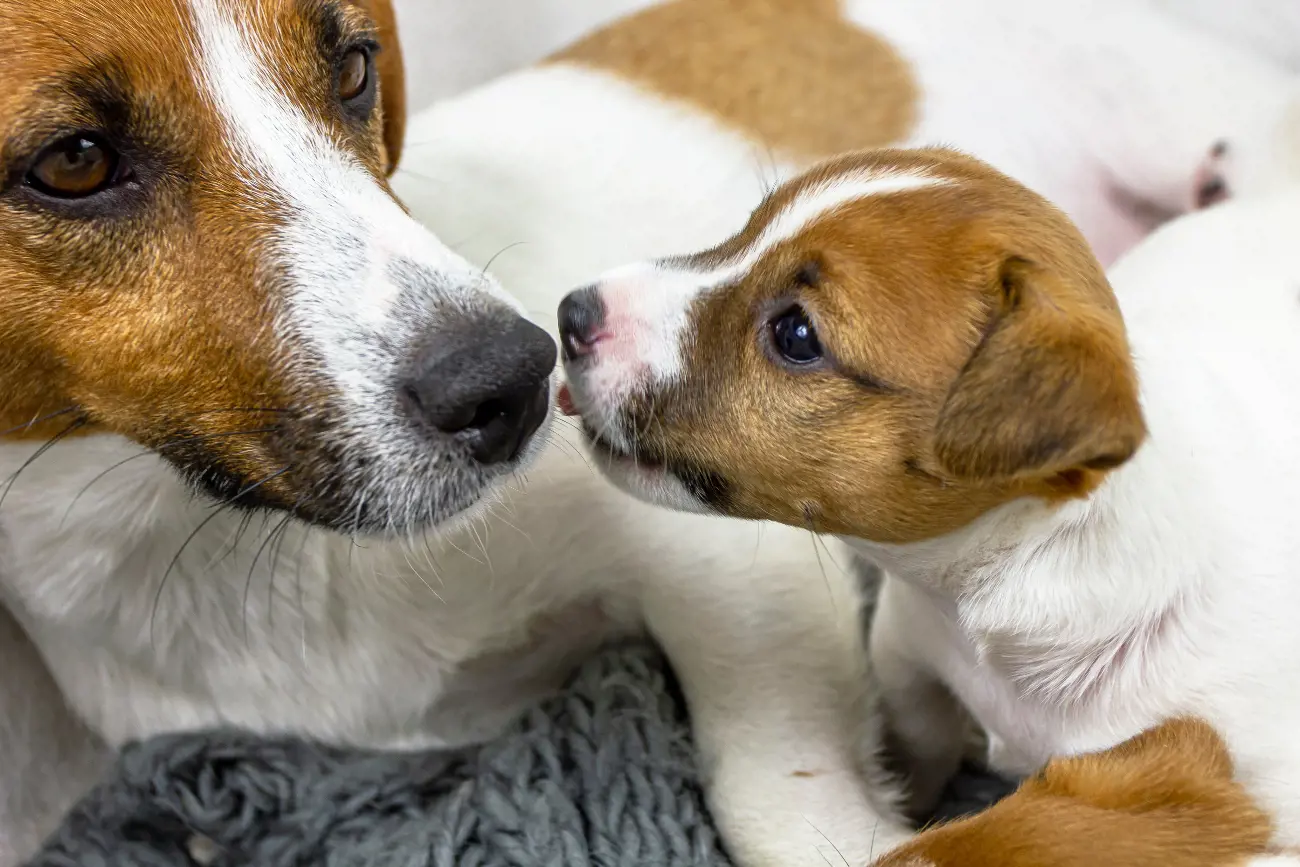How to tell if a kitten has rabies?
4th August, 2023

Rabies is a severe and fatal disease that affects the central nervous system of mammals, including kittens. As pet owners, it is advised to understand the risks and symptoms associated with this disease, as well as the necessary precautions to prevent its transmission.
In this article, we will explore how to tell if a kitten has rabies, the warning signs, and the steps to take if you suspect your kitten may have contracted the virus.
By being informed and proactive, you can help ensure the health and safety of your furry friend.
Understanding rabies: Causes and transmission
Rabies is caused by a virus called Lyssavirus, which is transmitted mainly through the saliva of an infected animal. The virus usually enters the body through a bite or scratch from infected animals, although it can also be transmitted if the saliva comes into contact with an open wound or mucous membrane.
Although rare, the virus can also be transmitted through the air, such as in bat-infested caves.
In kittens, the most common source of rabies transmission is through contact with an infected animal, such as:
- Raccoons
- Bats
- Foxes
- Skunks
Kittens who are allowed to roam outdoors are at a higher risk of exposure to the virus.
Additionally, an unvaccinated cat can also transmit the virus to kittens, making vaccination an essential aspect of preventing rabies in your pets.
How to tell if a kitten has rabies: Warning signs
To determine if a kitten has rabies, you should be on the lookout for the following warning signs:
- Changes in behaviour, such as increased aggression, anxiety, or fear
- Fever and loss of appetite
- Difficulty swallowing, leading to excessive drooling and salivation
- Disorientation, uncontrolled movements, and seizures
- Weakness and paralysis, especially in the muscles of the face and neck
If you notice any of these rabies symptoms in your kitten, it is advised to seek veterinary assistance.
Rabies progression in kittens
In kittens, the progression of the rabies virus follows a specific pattern.
Prodromal stage
The initial symptoms are known as the prodromal stage, during which the kitten may exhibit non-specific symptoms such as fever, lethargy, and loss of appetite. This stage can last for 1-3 days.
Furious stage
Next, the kitten enters the furious stage, which is characterised by aggressive and erratic behaviour.
Symptoms of rabies in the furious stage may include unusual behaviour such as:
- Attacking objects or people for no apparent reason
- Excessive vocalisation
- Restlessness
At this stage, the kitten may show extreme sensitivity to light and sound, which can cause seizures.
Paralytic stage
The final stage of rabies in kittens is known as the paralytic stage. During this stage, the kitten becomes weak and uncoordinated due to paralysis of the limbs.
Additionally, the kitten may experience difficulty in swallowing and may drool excessively. Paralysis gradually spreads throughout the body until it reaches the respiratory muscles, leading to respiratory failure and death.
It is important to note that not all kittens infected with rabies will exhibit all three stages of the disease. Some kittens may skip the prodromal stage and progress directly to either the furious or paralytic stage.
Similarly, some kittens may only display symptoms of one stage before succumbing to the disease. The progression of rabies in kittens can be prevented through timely rabies vaccination.
Kittens should receive their first rabies vaccine at 12 weeks of age, followed by a booster vaccine at regular intervals. Additionally, kittens should be kept away from stray animals that may be carrying rabies.
What is the incubation period?
The incubation period for the rabies virus in cat can vary, but it typically ranges from one to three months. However, it can take as little as a week or as long as a year for early symptoms to appear.
During this period, the virus is multiplying in the cat's body, and the cat may not show any signs of illness. It's important to note that once the symptoms of the rabies virus appear, the disease is almost always fatal.
Therefore, it's advised to schedule rabies vaccines for your cats and to seek medical attention immediately if a cat has been bitten by an animal suspected of having rabies.
If you suspect your kitten has rabies
If you suspect that your kitten may have rabies, it is suggested to act quickly and responsibly.
First, avoid handling your kitten without proper protection, such as gloves, as the virus can be transmitted through saliva. Keep your kitten isolated from other animals and humans to minimise the risk of having rabies transmitted between animals and humans.
Contact your veterinarian for advice on the next steps. They will guide you through the process of identifying whether your kitten has rabies and, if necessary, the appropriate treatment options.
In some cases, your veterinarian may recommend the infected animal be humanely euthanised to prevent the spread of the virus and protect the health of other animals and humans in the vicinity.
How do you know if a cat has rabies: Adult cats vs. kittens
The symptoms of rabies in cats are similar to those in kittens, although they may be more pronounced and occur more rapidly due to the adult cat's more developed immune system.
It is essential to monitor your cat's behaviour, regardless of age, for any signs of rabies virus. Early detection and intervention are helpful in managing the disease and minimising its impact on your pet and those around them.
Confirming a rabies diagnosis: Veterinarian tests
If your veterinarian suspects that your kitten may have rabies, they will perform a series of tests to confirm the diagnosis.
These tests may include a physical examination, blood tests, and neurological examinations. In some cases, the veterinarian may need to take a sample of your cat's saliva, spinal fluid, or brain tissue for further testing.
Unfortunately, there is no cure for rabies once the symptoms have developed. The only definitive way to diagnose rabies is by having the cat's brain examined and testing brain tissue, which can only be done after the animal has died.
Consequently, it is helpful to prioritise prevention and vaccinations to protect your kitten from contracting the virus.
How is the virus transmitted?
The rabies virus is typically transmitted through the saliva of an infected animal, usually through a bite wound.
In the case of cats, they are one of the most common carriers of the virus, and they can transmit it to humans and other animals through bites or scratches. It is important to note that rabies can also be transmitted if the infected saliva comes into contact with an open wound or mucous membranes, such as the eyes or mouth.
Additionally, it is critical to avoid contact with unvaccinated feral cats or any cat that is exhibiting abnormal behaviour, such as aggression or disorientation.
If an individual is bitten or scratched by an infected cat, they should seek medical attention and take steps to prevent the wound from becoming infected.
Can humans contract the rabies virus from cats?
Yes, humans can contract rabies from cats. If a cat is infected with rabies, it can transmit the virus to humans if they are bitten or scratched by the rabid cat.
Any contact with the infected saliva of an animal can also cause the virus to spread. Therefore, it is important to avoid contact with stray or wild animals, and to vaccinate your pets against rabies to prevent the spread of the disease.
Rabies vaccine and prevention for kittens
Vaccination is the most effective way to prevent rabies in kittens. Kittens should receive their first rabies vaccine between 12 and 16 weeks of age, followed by a booster vaccine one year later and then an additional rabies booster every one to three years, depending on the specific rabies vaccines used and local regulations.
In addition to vaccination, you can take additional precautions to protect your kitten from rabies.
These include:
- Keeping your domestic cats indoors or closely supervised when outdoors to minimise contact with potentially infected animals
- Avoiding contact with wildlife, especially those that appear sick, disoriented, or aggressive
- Reporting any stray or wild animals that display suspicious behaviour to your local animal control or wildlife authorities
- Legal requirements and reporting a rabies infected animal
- In many countries, rabies vaccination is a legal requirement for pet owners.
- Failure to vaccinate your kitten against rabies can result in fines or other penalties.
Additionally, if your kitten is suspected of having rabies, you are legally obligated to report the case to your local health or animal control authorities.
This ensures that appropriate measures are taken to prevent the further spread of the virus and protect the health of both animals and humans in the community.
Ensuring your kitten's health and safety

Rabies is a severe and life-threatening disease, but with proper knowledge and precautions, you can help protect your kitten from its devastating effects.
By being vigilant for the warning signs, keeping your kitten vaccinated, and acting responsibly if you suspect rabies infection, you can help ensure your kitten's health and safety, as well as the well-being of those around them.
To get a cat insurance quote for your furry friend, you can get a quote through our website by clicking here. If you would like to talk to one of our pet insurance team, you can get in touch with us on 0330 102 5748.
Helpful Pages
Recent Posts
Pet Insurance Quote
- 98% claims paid *
- Claims paid directly to vets
- 24/7 vet video consultations
- Interest free monthly payments




